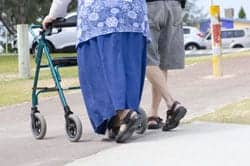Undertaking a supervised exercise program can have beneficial effects on functional status and physical function, reduce the need for daily corticosteroid and anti-inflammatory intake, and improve levels of depression and anxiety in people with rheumatoid arthritis (RA), according to a new study presented at EULAR 2009, the annual congress of the European League Against Rheumatism in Copenhagen, Denmark.
A 3-month program, comprising moderate aerobic and strengthening exercises, conducted for 50 to 60 minutes three times per week, proved not only to be safe and beneficial physically and in terms of quality of life for patients, but was also associated with a stabilizing effect in disease activity measured by DAS28*.
During the Portuguese study’s three month period, researchers observed the following:
–A 33% improvement in the HAQ (Health Assessment Questionnaire) disability index measurement of physical functioning (assessing ability to undertake everyday activities such as dressing, eating, and walking, and whether assistance from another person or disability aids is required) (p < 0.023)-
–An improvement in physical function, as outlined below:
55% improvement in the ‘sit and stand’ test (p=0.018)
10% improvement in the right-hand grip test (p=0.025), and 15% in the left-hand grip test (p=0.035)
19% improvement in the walk time test (p=0.063)
62% of patients reported a reduced need for daily corticosteroid intake, from a mean dosage of 5.3mg/day of prednisone to 3.1mg/day (p=0.038)
32% of patients reported stopping concurrent NSAID (non-steroidal anti-inflammatory drug) treatment altogether following the exercise program (p=0.083)
Mean LDL (low-density lipoprotein) cholesterol increased from 90mg/dl to 125mg/dl (p=0.018)
40% improvement in the Depression Anxiety Stress Scales (DASS), a self-reported assessment of negative emotional states, with 28% in the depression and 48% in the anxiety component respectively (p=0.078)
The observational longitudinal study followed eight physically-inactive patients (seven female; mean age of 59 (46 to 71) years; mean disease duration of 16 (3 to 30) years) with relatively stable RA (stable medication taken for at least three months; mean dose of methotrexate 17.5mg/week) for three months.
* DAS28 (Disease Activity Score) is an index used by physicians to measure how active an individual’s RA is. It assesses number of tender and swollen joints (out of a total of 28), the erythrocyte sedimentation rate (ESR, a blood marker of inflammation), and the patient’s ‘global assessment of global health’. A higher score indicates more active disease.
For more information, visit the Web site or send an e-mail.
Abstract number: AB0724
EULAR is the organization that represents patients, health professionals, and scientific societies of rheumatology of all of the European nations.
[Source: Eureka Alert]




